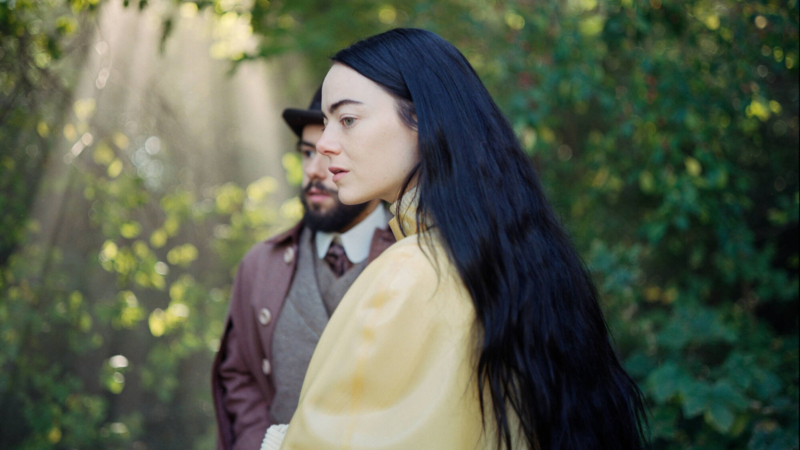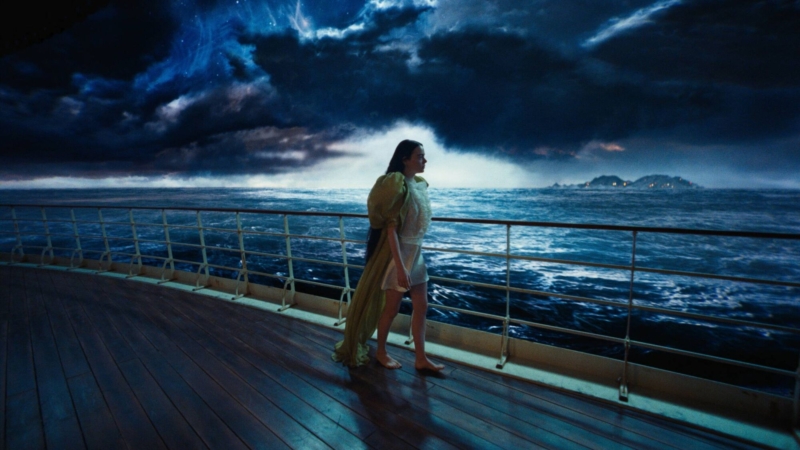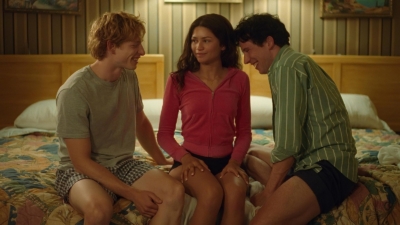
Bella Baxter lives in a manor with a surgeon, Dr Godwin Baxter. She looks like an adult woman but behaves like a small child. Day after day, her need to explore and experience the outside world grows stronger and stronger. Ultimately, she elopes with a debauched lawyer and starts a journey, upon which she will get to understand herself better and achieve sexual liberation.
This is the second time Tony McNamara has collaborated with Yorgos Lanthimos and the third time he has worked with Emma Stone. His screenplay is a loose and rather selective adaptation of the novel by Alasdair Gray because McNamara decided to focus on a specific perspective and interpretation of the book’s events. Therefore, those who expected a faithful adaptation might feel slightly disappointed. Those, however, who are open to a more idiosyncratic reimagining of the original and its rendering in Lanthimos’s film language, will fall head over heels for the film.

Some of the plot ideas, which are borrowed directly from gothic novels (for instance, Bella was born during a Frankensteinesque experiment), together with the unusual setting highlight the symbolic nature of the story. “Poor Things” seem to take place somewhere between dream and reality: in a peculiar Victorian manor, on a bizarre ship and on overstylised streets of Paris. All these sceneries show remarkable imagination, immense artistry and Lanthimos’s signature aesthetics.
The fantastical sets also had their different functionalities. Willem Dafoe mentioned that the floor in one of the mansion’s rooms was made of a foamy material, which forced the actors to walk in a specific way and influenced their acting.

As with the previous film by Lanthimos, “The Favourite”, this one was also shot by Robbie Ryan. He is quite a renowned cinematographer with numerous awards for his work, Camerimage statuettes included (for “The Favourite”, “C’mon C’mon” and “Poor Things” among others). The latest film yet again shows his artistry and versatility. The cinematography in “Poor Things” is incredibly diverse: there are scenes both in colour and black and white; shots made with a traditional lens and a fisheye one. And although at times, it’s difficult to find specific intent behind a certain way in which Lanthimos’s world is shown, the cinematography is top-notch when it comes to its technical aspects.
The score, composed by 28-year-old Jerskin Fendrix, is also quite interesting. It’s Fendrix’s feature film debut and Lanthimos brought him onto this project after he had heard the composer’s debut album, “Winterreise”. Fendrix uses pipe organs, uilleann pipes and synthesisers to create his musical compositions. They sound unusual and innovative, perfectly fitting the world created by the filmmakers.

Mark Ruffalo is also absolutely wonderful in this one. He portrays an enormous douchebag and, with each new scene, all you want to do is hit him in the face. His assholery — thanks to Ruffalo’s comic talent — is also tremendously funny.
Willem Dafoe as Godwin Baxter and Ramy Yudduf as Max McCandles are also very interesting. Their roles have more seriousness to them, although the actors use this seriousness for different purposes. Dafoe goes all the way with the story’s style, while Yusuf contrasts with it, introducing some necessary distance.
“Poor Things” is a wild and immensely original film that’s also quite a contemplative experience asking about the shape of the world devoid of patriarchal norms. Although Lanthimos won’t convince everyone with the openness of his questions, it’s worth seeing his film despite it. Maybe it will make you think about going into life with the courage to break with conventions.









Leave a Reply